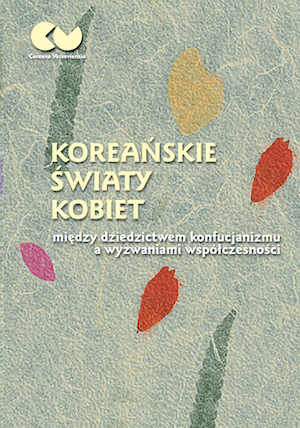Językowy obraz kobiety we współczesnej leksyce i frazeologii koreańskiej
Linguistic representation of women in modern Korean vocabulary and phraseology
Author(s): Jeong In Choi
Subject(s): Cultural history, Studies of Literature, Other Language Literature, Philology
Published by: Wydawnictwa Uniwersytetu Warszawskiego
Keywords: woman; man; feminine; masculine; gender; symetria językowa; linguistic symmetry; korean lexis; korean phraseology
Summary/Abstract: The linguistic representation of women has been embedded in the Korean language in opposition to the representation of men and as such can become an object of research on the lexicon and phraseological expressions reflecting the social status and perception of Korean women. Analyzed within this article, a set of nouns referring to women shows some lexical symmetry between sexes. This symmetry is manifested by the occurrence of noun pairs like a man: a woman and female/woman like: male/manlike. The second pair of this scheme can be observed in very special contexts and meanings. Moreover, in the Korean language there is a high frequency of Sino-Korean vocabulary and morphological prefixes which denote womanhood and thus women’s professions. The usage of such prefixes has described situations where women started to pursue careers that used to be considered solely male and is not limited to Korean vocabulary only. The gradual emancipation of women has been mirrored in the language and thus shows the vocational emancipation of women – these days a permanent social phenomenon. The different linguistic examples of the inequality of sexes and some special privileges of men seem to show an existent though retreating tradition while the language symmetry shows the equality of sexes as a result of social changes.
Book: Koreańskie światy kobiet – między dziedzictwem konfucjanizmu a wyzwaniami współczesności
- Page Range: 165-179
- Page Count: 15
- Publication Year: 2019
- Language: Polish
- Content File-PDF

